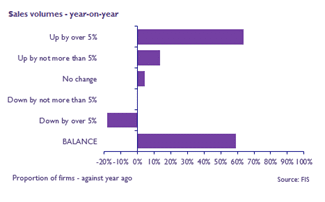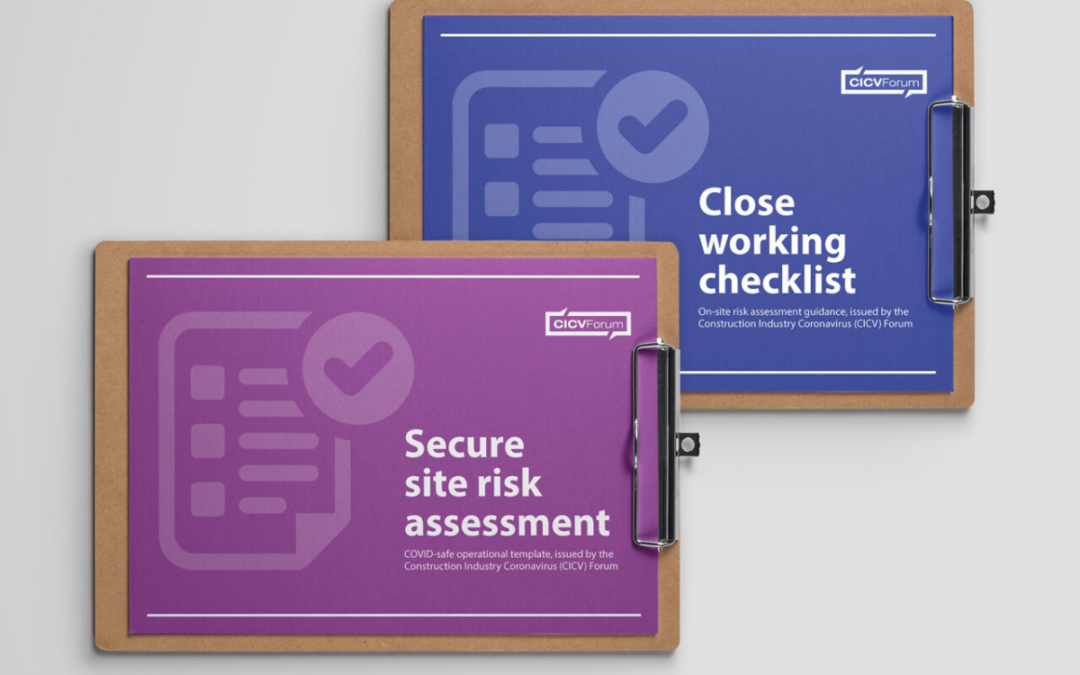
by Iain McIlwee | 29 Jul, 2021 | Main News Feed, Transformation
Following the formation of a small working group in Scotland to look at retentions, a new paper has been presented to Scottish Government.
Retentions have long blighted construction and this paper sets out conclusions from the working group together with clear recommendations designed to support the construction sector and improve cash flow and business sustainability, particularly for small and medium sized businesses.
Whilst the recommendations fall short of recommending an outright ban on retentions it recommends automatic release and legislation that will ensure retentions are held in a Retention Deposit Scheme.
The ten key recommendations are as follows:
- Scottish Ministers should take forward legislation that will apply to both public and private sector construction contracts to establish a statutory custodial Retention Deposit Scheme, following development of a detailed business case
- Scottish Government should publish a retention best practice policy note for contracting organisations by end January 2022 and consider with contractors, professional bodies and the wider industry, how best to disseminate and promote compliance. This should include a move towards automatic release of retentions at the earliest opportunity unless a clear issue had been identified and an approach to, and timetable for, resolution set out. It will also provide a requirement that organisations withholding a cash retention should not:
- repay late or partially, without full and clearly articulated justification
- render it liable to claim by an upstream insolvent supply chain party
- use more than one form of assurance on construction contracts
- by end January 2022 the Scottish Government should invite all contracting authorities involved with major construction projects (a major construction contract is defined in the Scottish Public Finance Manual as one which “has a total anticipated whole life cost of £5m+) to publish their retention policy and monitor and report on compliance. This should be a requirement for all major projects delivered using Scottish Government finance
- within six months of project handover (practical completion) for each major construction contract, require contracting authorities to publish their compliance with retention best practice or explain how and why they have deviated from it
- Scottish Government should ensure that reference to retentions and fair payment is included within the Construction Accord
- Scottish Government to work with industry to ensure retention best practice is reflected in standard construction contracts, including dispute resolution and conflict avoidance procedures and agreed payment procedures
- promote further consideration/implementation across the sector of the removal of retentions from contracts as demonstrated by Network Rail. This includes;
- progress payments not subject to automatic deduction as work
proceeds
- the final payment adjusted to place greater emphasis on completing project closure activities such as the Health and Safety file and producing a [priced] list of patent defects
- upon publication of best practice policy notes, Scottish Government and industry should host a major conference or series of webinars to focus on the promotion and implementation of retention best practice, including conflict avoidance
- invite Government Enterprise Agencies to work with representative bodies and businesses in the construction sector to identify and deliver efficiency opportunities. This might include a feasibility study to consider implementing an approach to the management of construction project cash-flow using digital technologies such as smart contracts
Commenting on the report, FIS CEO Iain McIlwee said:
“This is another welcome intervention from Scottish Government and we are keen to support this progress. Whilst we would all like to see a complete end to the practice of holding retentions, at least this way we see the link between working capital and retention broken in a similar way to the Aldous Bill in England which FIS Members supported.”
The full report Cash retention under construction contracts: short life working group final report and recommendations can be read here
The FIS formal Position on retentions and Contractual reform can be read here

by Iain McIlwee | 29 Jul, 2021 | Main News Feed
The FIS Latest Trends Survey indicates that overall 58% of respondents reported increased quarterly sales in Q2 2021. Looking into the next quarter, the market is even more optimistic than in Q1 with a balance of 70% expecting increased sales in Q3 and despite material and labour shortages a balance of 33% anticipating this will convert into increased volumes of work. Looking into 2022 81% of respondents are anticipating increases in sales to continue into 2022.
Shortages remain the biggest concern to market expansion with material shortages acute and labour shortages becoming ever more a concern. Over 60% of firms reporting labour shortages with 22% reporting that the availability of migrant workers has now fallen by more than 25%. The situation will not ease over the summer with holiday plans adding to the pressure – 71% of firms are anticipating problems over the next 12 months. Drylining, Ceiling, Fixing, Plastering, Carpentry and Joinery and Partitions Installer all being listed as areas of concern. Worryingly, whilst 48% believe the major issue is COVID delaying return, 34% predict that the labour will not return.
Commenting on the report, FIS CEO, Iain McIlwee stated: “The numbers reflect the conversations that we are having – there is work out there and members are getting busy. The conditions in the market, however, remain incredibly difficult and despite inflation, packages continue to be squeezed hard to hit unrealistic tender prices and programmes. It is imperative that, as a supply chain, we recognise the only way to ensure that shortages do not cause chaos is to plan better, build time into the procurement process and ensure that engagement is early enough to minimise design and programme problems that result in rework and waste. We also have to ensure commitment is given and contracts are exchanged earlier, ensuring that there is sufficient time to support the complex and precise planning, enabling labour and materials to be secured to deliver quality. The days of snapping your fingers on a Friday and 60 bodies arriving on site on Monday have to be consigned to the past.”
The FIS Q2 Market Trends Survey is available for download here
FIS works in collaboration with the Construction Products Association (CPA) to produce this report and manufacturing data is aggregated as part of their wider survey. The wider manufacturing sector posted a fourth successive quarterly expansion in the second quarter of 2021, according to the latest Construction Product Association’s (CPA) State of Trade Survey. Private housing, infrastructure and private housing repair, maintenance and improvement (rm&i), in which activity remains firmly above pre-coronavirus levels, continued to be the main drivers of growth. Material cost inflation, however, remained a prominent feature and supply-side constraints were seen as the key concern for the year ahead. The full CPA survey can be downloaded here.

by Clair Mooney | 22 Jul, 2021 | Main News Feed
The Construction Leadership Council (CLC) has prepared this industry update in relation to COVID-19 and self-isolation. Following the relaxation of COVID-19 rules on 19 July 2021, and with awareness of the growth in cases of COVID-19, the CLC wants to support construction businesses to understand the rules and UK Government policy in this area
When must a worker self-isolate?
Workers must self-isolate immediately if:
- they have any symptoms of COVID-19 (a high temperature, a new, continuous cough or a loss or change to sense of smell or taste);
- they have tested positive for COVID-19;
- someone they live with has symptoms or tested positive;
- they have been told by NHS Track and Trace that they have been in contact with someone who tested positive;
- they have arrived in England from abroad from a ‘red list’ country, or from an ‘amber list’ country and not been fully vaccinated.
What does it mean to be a ‘contact’?
A contact is a person who has been close to someone who has tested positive for COVID-19. You can be a contact any time from two days before the person who tested positive developed their symptoms (or, if they did not have any symptoms, from two days before the date their positive test was taken), and up to 10 days after, as this is when they can pass the infection on to others. A risk assessment may be undertaken to determine this, but a contact can be:
- anyone who lives in the same household as another person who has COVID-19 symptoms or has tested positive for COVID-19;
- anyone who has had any of the following types of contact with someone who has tested positive for COVID-19:
o face-to-face contact including being coughed on or having a face-to-face conversation within one metre
o been within one metre for one minute or longer without face-to-face contact
o been within 2 metres of someone for more than 15 minutes (either as a one-off contact, or added up together over one day)
A person may also be a close contact if they have travelled in the same vehicle or plane as a person who has tested positive for COVID-19
What must workers do if they are told to self-isolate by NHS Test & Trace or a contact tracer?
Workers must self-isolate if told to do so by NHS Test and Trace. This remains the law, regardless of vaccination status.
What must workers do if they receive an alert from the NHS COVID-19 app?
If a worker receives an alert telling them they are a close contact of someone who has tested positive for COVID-19, there is no legal requirement to isolate as the app is advisory rather than mandatory.
However the NHS and Government guidance is that individuals should self-isolate, as outlined above and that businesses should support workers to do so.
In some cases, NHS Test & Trace will advise on an isolation period and a worker will receive an alert on the NHS COVID-19 app, with the app recommending a longer period of isolation. NHS Test & Trace self-isolation periods are legally mandatory, any additional length of isolation recommended by the app is advisory.
What changes are expected on 16 August 2021?
From 16 August, if a worker has been fully vaccinated they will be exempt from the requirement to self-isolate if they are a contact of a positive case. They will instead be advised to take a PCR test as soon as possible.
Workers will also be exempt from self-isolation from 16 August if they are under 18 and a contact of a positive case. As with adults, they will be advised whether a PCR test needs to be taken. Those who are not fully vaccinated will still be required to self-isolate.
If workers test positive they will still need to self-isolate regardless of their vaccination status or age.
Are there any exemptions from self-isolation for construction workers?
There are some limited and exceptional circumstances whereby some critical workers may still work even if they are a close contact of someone that has tested positive for Covid-19.
These exemptions only apply to workers:
- Who, if they could not work, would lead to major detrimental impact on the availability, integrity or delivery of essential services – including those services whose integrity, if compromised, could result in significant loss of life or casualties, and/or where there is an immediate risk to defence or security.
- who are fully vaccinated (defined as someone who is 14 days post-final dose) and will be solely so that they can attend work. They will otherwise need to continue to
self-isolate as directed by NHS Test and Trace. It applies to asymptomatic contacts only and not individuals who have tested positive or who have COVID-19 symptoms.
The exemption is highly limited and focused to prevent public harm from disruption to critical services. It will only apply to named individuals from a specific set of organisations. Employers covered by this process will receive a letter from a government department setting out the designated critical workers and telling employers what steps they and those critical workers must follow.
What is Government policy on workplace testing and home testing?
Businesses who introduced workplace testing (under the Government scheme) were able to order free rapid flow tests until midnight on 19 July 2021. The Government funded element of the workplace testing scheme has now come to an end, and businesses who had introduced this scheme will have to engage a private provider or ask employees to use home-based testing.
Currently, employees are able to order free rapid flow tests for themselves and their household on GOV.UK. It is also possible to pick up free rapid flow tests at pharmacies and other community organised locations and test sites (see here). The Government has announced that funding for free rapid testing at home will continue until at least the end of August 2021.

by Clair Mooney | 22 Jul, 2021 | Main News Feed
As Scotland moves towards further easing of restrictions, the CICV Forum has issued more timely guidance and sounded a cautionary note, urging the sector to keep its focus on health and safety to protect colleagues, customers and families.
The unique collaboration says the sector is “not out of the woods yet” and, with COVID-19 still a very real threat, insists each worker has a vitally important role to play in continuing to maintain good hygiene.
With Scotland set to follow England with its own so-called “Freedom Day” on August 9, the Forum has stressed that companies should continue to adhere to standard operating procedures (SOP) to ensure maximum focus on health and safety.
Rebecca Crosland, Chair of the Forum’s Health and Safety group, and Head of Health & Safety at the Building Engineering Services Association (BESA), said: “The past 15 months have been an extremely difficult period for everyone, and we have only come this far by pulling together and following the rules.
“This spirit of collaboration and cooperation must now continue over the coming weeks as we prepare for restrictions to be eased further, both in our professional and personal lives.
“Make no mistake – COVID-19 is still a very real threat and we are not out of the woods yet. Vaccinations can only help so much and it is vital that the sector continues to be careful when it comes to health and safety.
“We will still have one-metre distancing and businesses should continue to follow the SOP and domestic guidance issued by CICV Forum until at least 9 August when we will be among those meeting with Scottish Government to discuss what action will be taken next.
“Everyone in the sector has done well and played their part over the course of the pandemic and we shouldn’t relax too soon.”
To help further, the Forum has produced a secure site risk assessment template that can be downloaded to help contractors plan COVID-safe working practices.
It has also produced a close working checklist to help construction professionals plan for projects that involve close contact in enclosed conditions.
Rebecca added: “These two new pieces of guidance will help operatives carry out COVID-19 risk assessments for a range of projects, including where close working is required, and help them consider the safest way for those tasks to continue.
“They also make it clear that, during such activities, appropriate mitigation methods should be put into place including lateral flow testing, increased hand washing and environmental cleaning, face covering, adequate ventilation and keeping any close activity as brief as possible.”
The guidance follows a range of other information which is still available on the Forum site, including advice on working from home, preparing for HSE spot checks and an overview of the current professional indemnity insurance market.
Fiona Hodgson, CEO of SNIPEF, another leading member of the Forum, said: “Once again, we are keen to do all we can to ensure the sector follows correct protocols to stay safe at this crucial time, and this new guidance will help provide clarity and essential advice.
“During the pandemic, construction has risen to the challenge, protecting staff and providing the bedrock of the UK economy throughout the year. However, it is vital that we continue to protect against the very real threat that remains.
“Our message is clear – workers should still observe hygiene rules and keep health and safety procedures front of mind to protect themselves, their colleagues, their customers and their families.”
The CICV Forum is made up of 29 trade associations, professional services bodies and companies. Since its inception in March 2020, it has maintained a steady supply of information and practical advice to the sector as well as carrying out surveys, producing animations and posters, hosting webinars and speaking with government ministers.

by Clair Mooney | 20 Jul, 2021 | Main News Feed
It is predicted the UK could face 2 million* cases of COVID-19 during the summer months. With the end of COVID restrictions and work from home guidance, there’s huge challenges for employers to keep their workplaces and people safe as cases continue to rise.
With testing previously described as the potential difference between a business having to close because of an outbreak and remaining open, you might be considering implementing a testing policy in your business. But how confident are you when it comes to consulting on, creating and communicating a testing policy and do you know your legal obligations?
To make sure you have everything covered and you’re on the right side of the law, FIS Associate Member and HR & Employment Law specialists Citation, has created a guide covering the essential considerations employers must make before implementing any testing policy in their business.
DOWNLOAD THE GUIDE HERE
Some of the key questions the guide explores, include:
- Can you make testing mandatory?
- What’s the best way to communicate your stance on testing to your employees?
- Can you ask your employees to disclose their test results?
- What are the data protection implications of workplace testing?
FIS member benefit
If you’d like to chat about how Citation can help with the HR and Health & Safety side of your business, just give them a call on 0345 844 1111, or fill in their call-back form and they’ll get right back to you.
Quote FIS when enquiring to access your member benefit.
*Source: The Guardian

by Clair Mooney | 15 Jul, 2021 | Main News Feed
As England moves to Step 4 of the COVID‐19 Roadmap on Monday 19 July, the majority of restrictions will end, however the SOP will remain available and businesses may want to maintain elements of social distancing for the time-being.
The Scottish Government has confirmed that Scotland will move to Level 0 on 19 July but certain mitigations will remain in place, including the mandatory wearing of face coverings and working from home where possible. Wales will move fully to alert level one from 17 July and to a new alert level zero on 7 August and Northern Ireland is expected to outline its plans for easing restrictions shortly.
The Prime Minister confiemd that from Moday 19 July people will no longer be required to work from home; however, the Government is emphasising that the pandemic is not over and people should exercise caution and take personal responsibility. It is expected and recommended that face coverings are worn in crowded and enclosed spaces when mixing with people you don’t normally meet, and the Mayor of London has confirmed that they will remain mandatory on the London transport network. Guidance will be published for businesses on managing the return to the workplace and the current position will be reviewed in September.
The CLC has issued a statement confirming that the Site Operating Procedures will remain available as a reference document from Monday 19 July. Whilst they will no longer reflect the latest Government guidance, businesses across the supply chain have welcomed the consistency that the Site Operating Procedures have provided and they may wish to maintain elements of social distancing for the time being. The CLC also recommends that the good practices the industry has adopted over the last 18 months are retained.
The CLC has updated its guidance on the Use of facecoverings in construction in line with the latest Government guidance from 19 July.
On a call earlier this week, almost 90% of Build UK Contractor members indicated that they will be maintaining social distancing measures on some or all of their sites until at least 16 August, when the requirement for close contacts to self‐isolate will be revised for those who have had both doses of the vaccine or are under 18.






